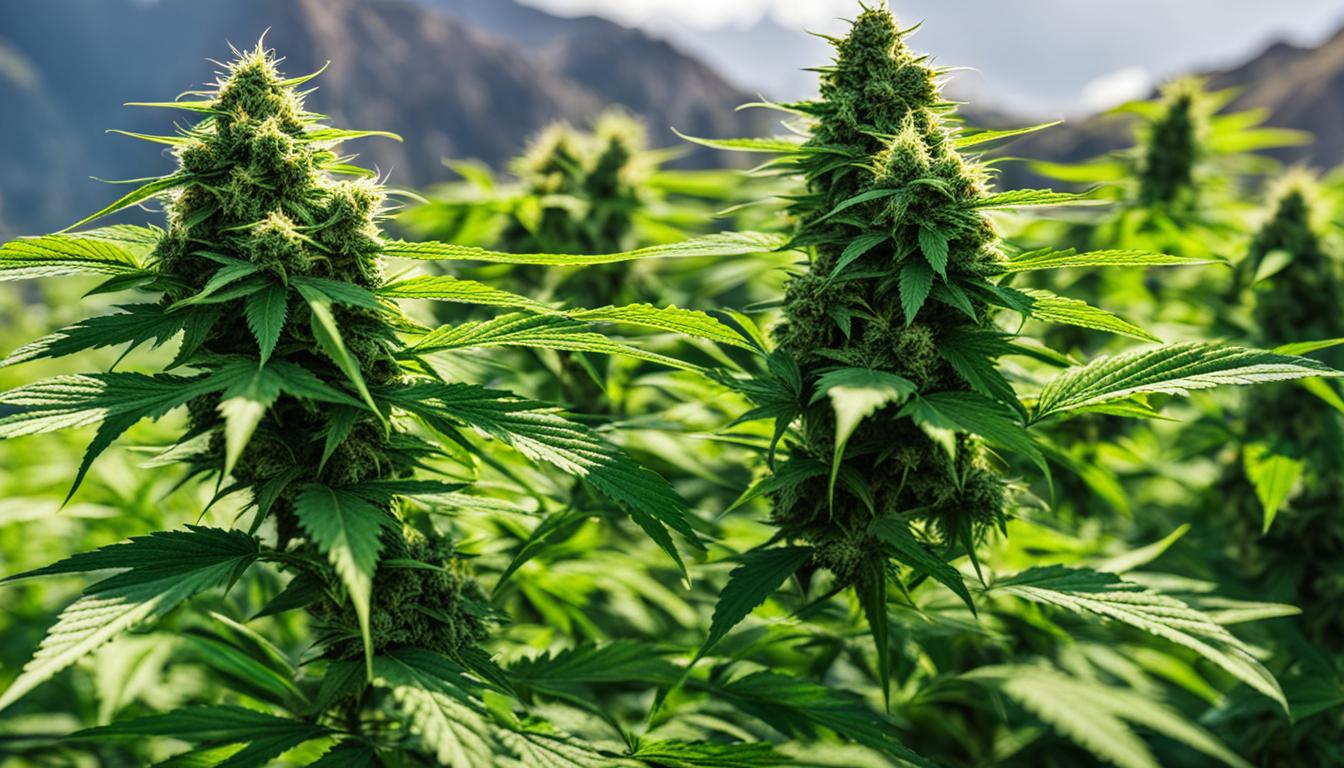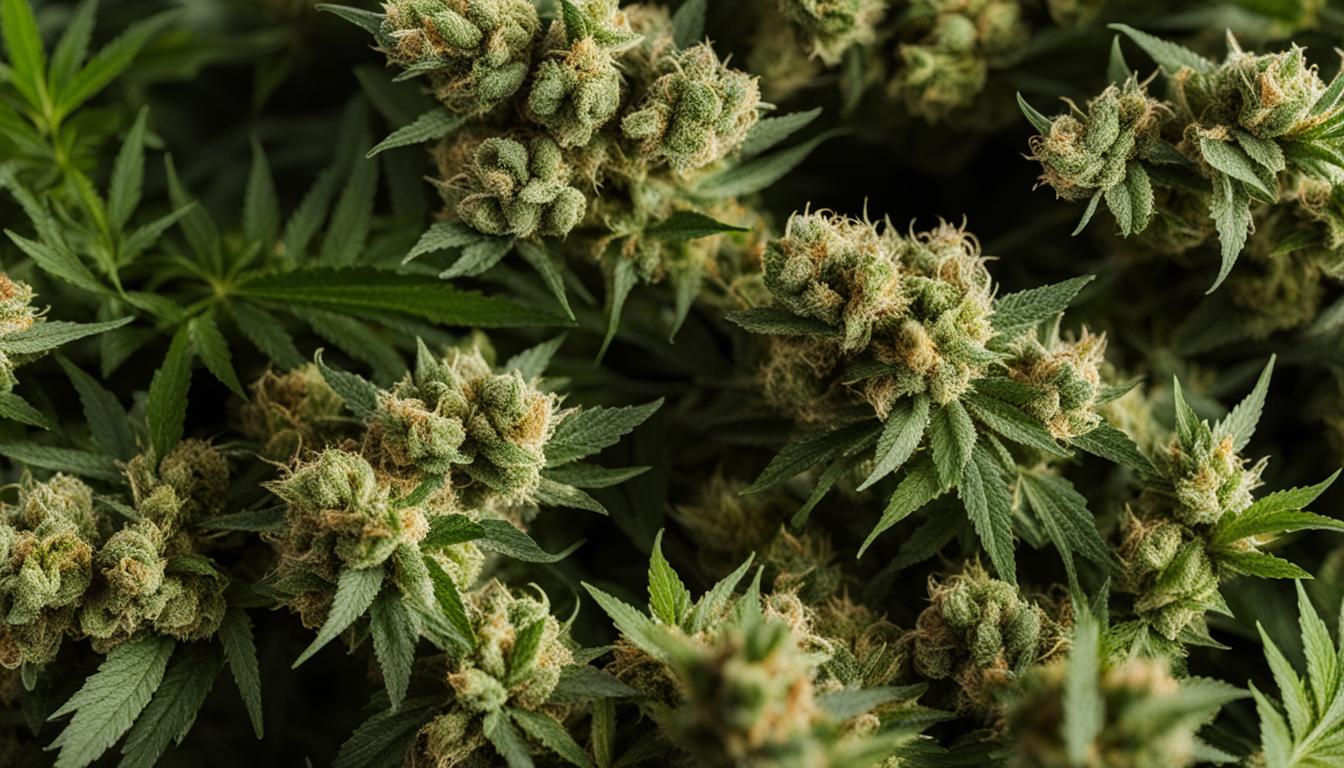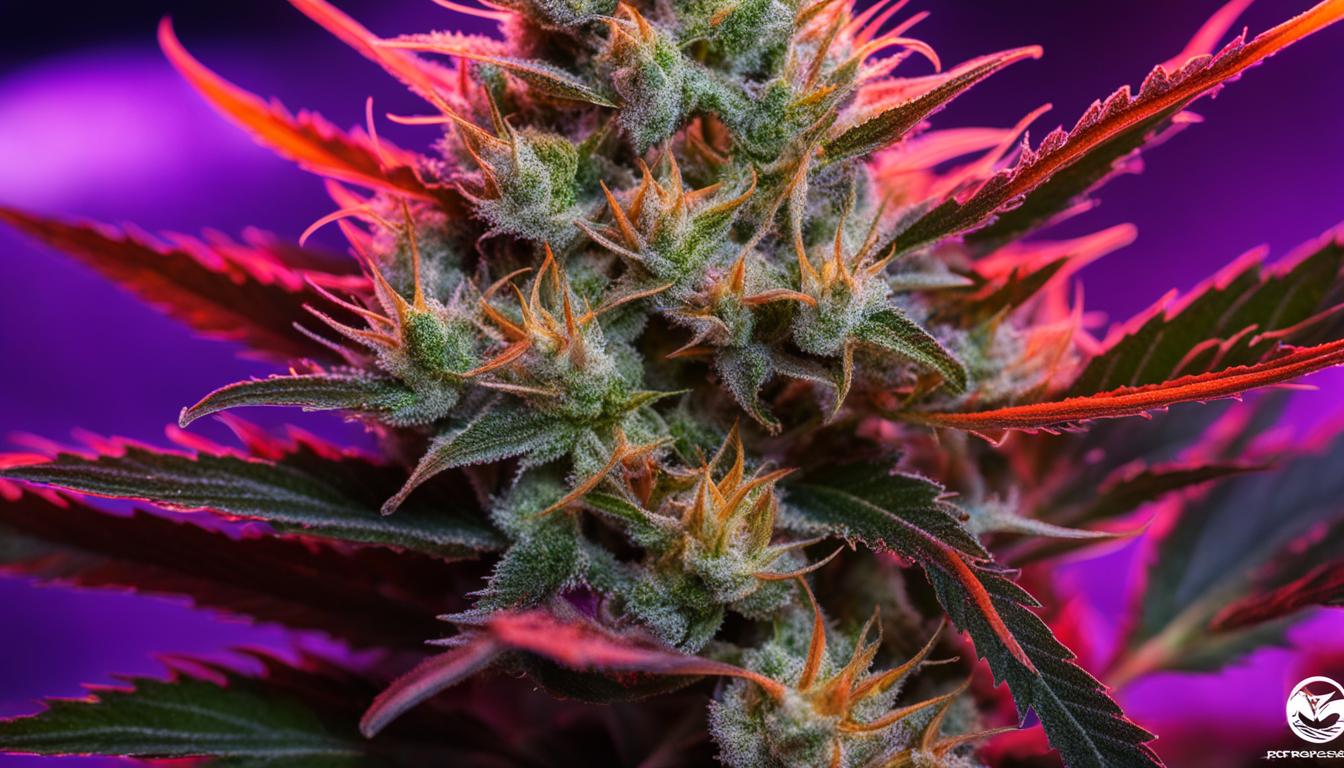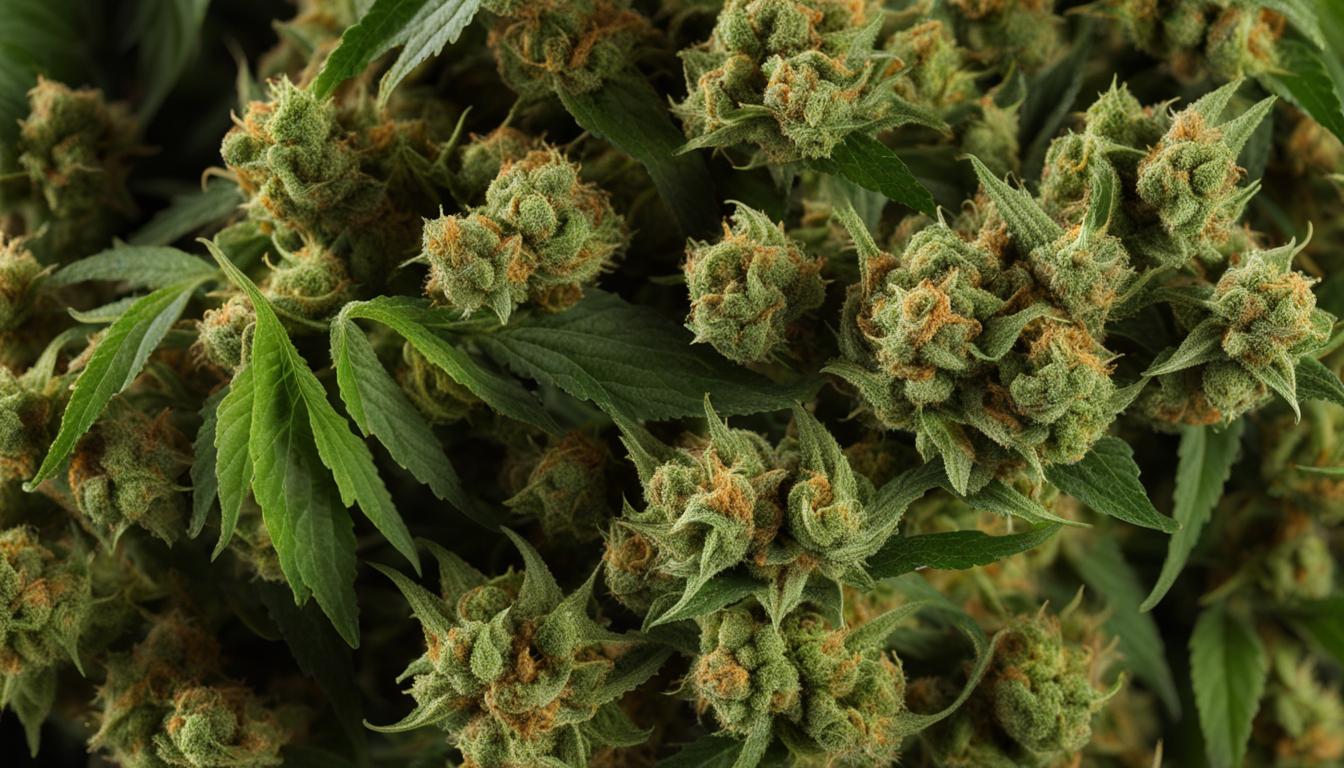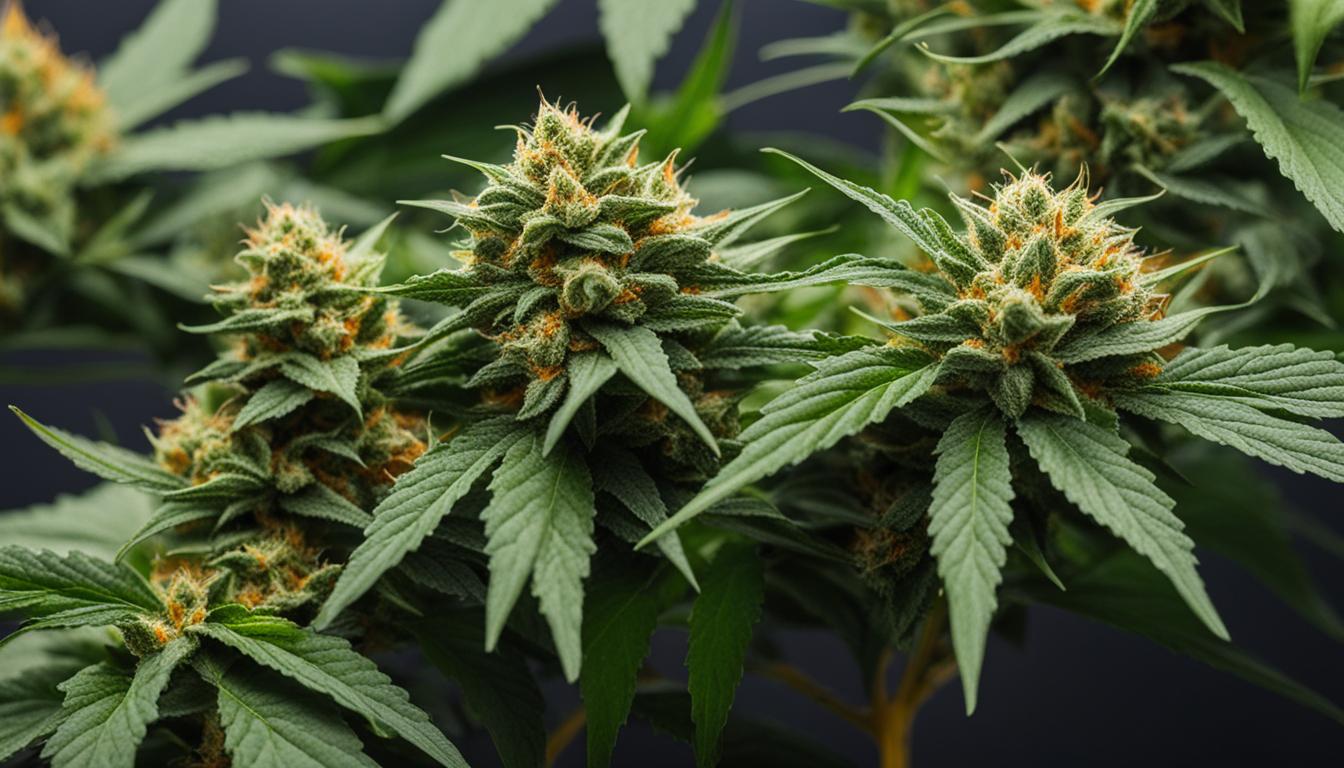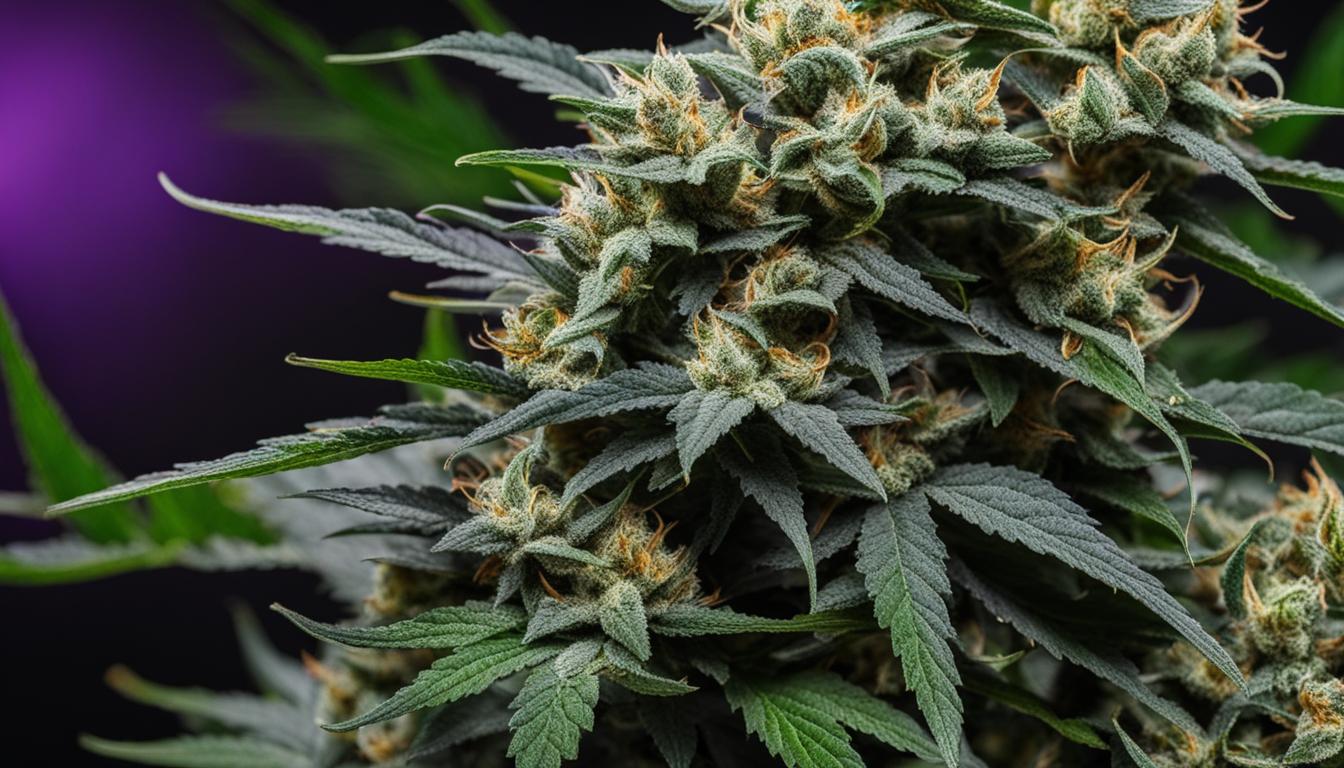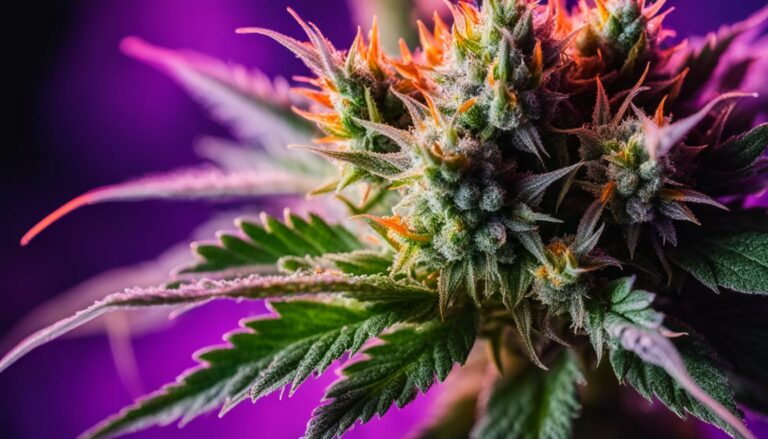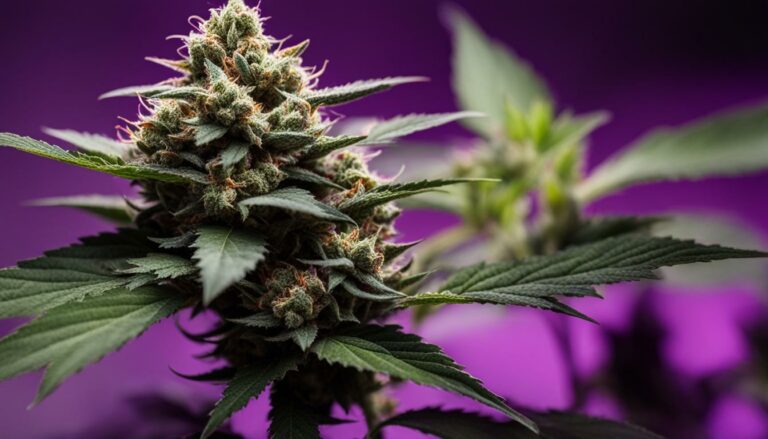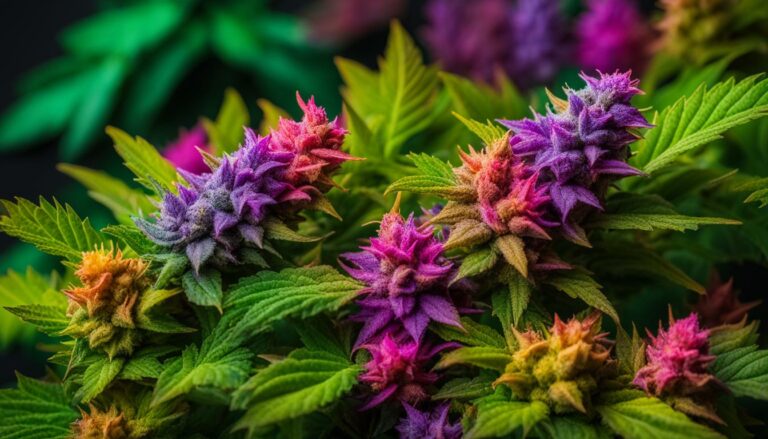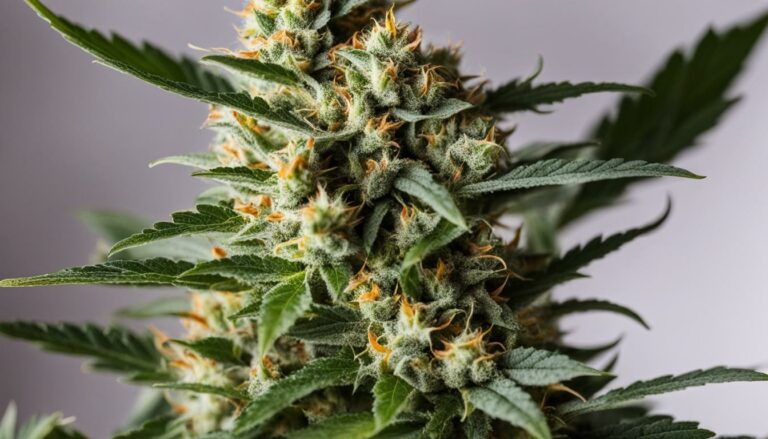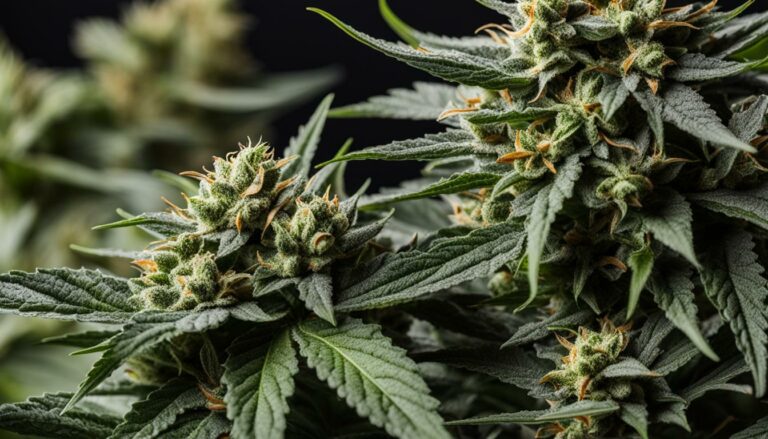Hindu Kush: Tracing the Roots of Indica Strains
Welcome to our exploration of Hindu Kush, a legendary strain that has left an indelible mark on the cannabis culture. Join us as we delve into its rich history, distinctive characteristics, and lasting legacy.
Key Takeaways
- Hindu Kush is a highly regarded strain known for its stable genetics, relaxing effects, and classic aroma.
- It originates from the Hindu Kush mountains in Central Asia, stretching from Afghanistan to Pakistan.
- With its landrace indica genetics, Hindu Kush offers a physical stone and deep relaxation, making it perfect for unwinding or meditation.
- Hindu Kush has a long history and has been bred with other strains to become the genetic backbone of modern cannabis varieties.
- Its high THC content, distinct flavors, and aromas contribute to its popularity and lasting impact on the cannabis scene.
Ancestral Home of Indica Strains: Hindu Kush Mountains
The Hindu Kush mountains, located in Central Asia, span across Afghanistan, Pakistan, and Tajikistan. Known for their breathtaking beauty and towering peaks, these mountains play a significant role in the origin and cultivation of the Hindu Kush strain.
The mountain range is home to some of the highest peaks in the world, including Mount Noshaq in Afghanistan, which stands at a staggering 24,580 feet (7,492 meters). The high altitudes and rugged terrain of the Hindu Kush mountains create the perfect conditions for the growth of cannabis plants, including the renowned Hindu Kush strain.
The Hindu Kush mountains have long been regarded as the ancestral home of indica strains, including Hindu Kush. The region’s unique climate and soil composition contribute to the plant’s distinct characteristics, such as its short stature, dense buds, and potent effects. Cultivators in this region have been growing cannabis for centuries, preserving the genetics of the Hindu Kush strain and passing down their knowledge from generation to generation.
The Hindu Kush Mountain Ranges:
| Country | Range | Highest Peak |
|---|---|---|
| Afghanistan | Band-e Turkestan | Mount Noshaq (24,580 feet / 7,492 meters) |
| Pakistan | Karakoram | K2 (28,251 feet / 8,611 meters) |
| Tajikistan | Pamir Mountains | Ismoil Somoni Peak (24,590 feet / 7,495 meters) |
These mountain ranges within the Hindu Kush region are not only geographically stunning, but they also hold immense cultural and historical significance. They have shaped the development and cultivation of cannabis strains like Hindu Kush, making them an integral part of the cannabis culture.
Hindu Kush Genetics: Indica or Sativa?
The Hindu Kush strain is a classic example of an indica plant. Indica strains are known for their relaxing and sedating effects, making them ideal for relaxation and stress relief. Hindu Kush has a distinct set of characteristics that are typical of indica strains.
One of the key traits of Hindu Kush is its short and bushy stature. Indica plants tend to be shorter and denser compared to sativa plants, which are taller and more lanky. This compact growth pattern makes Hindu Kush well-suited for indoor cultivation, as it takes up less vertical space.
When it comes to the effects of Hindu Kush, it offers a deep physical stone that relaxes both the mind and body. It induces a sense of calm and tranquility, making it popular for activities like meditation or simply unwinding after a long day. The relaxing effects of Hindu Kush are often accompanied by a pleasant body buzz and a sense of euphoria.
Indica Traits of Hindu Kush:
- Short and bushy stature
- Relaxing and sedating effects
- Physical stone and deep relaxation
- Perfect for meditation and unwinding
The genetics of Hindu Kush have had a significant impact on the development of other indica strains. Its stable genetics have been used by breeders to create new strains with similar characteristics. Hindu Kush has become a cornerstone in the world of cannabis breeding, influencing the traits and potency of many modern indica varieties.

“Hindu Kush is a prime example of an indica strain, renowned for its relaxing effects and distinct characteristics.”
The History of Hindu Kush Cannabis
Hindu Kush cannabis has a long and fascinating history that spans potentially hundreds of years. Originating from the Hindu Kush mountains in Central Asia, this strain has been cultivated and enjoyed by cannabis enthusiasts for generations. It was the travelers of the 1960s and 1970s who brought Hindu Kush to the United States, where it quickly gained popularity among the counterculture movement.
The cultivation of Hindu Kush cannabis in its native region is believed to have ancient origins, with locals cultivating the plant for its medicinal and recreational properties. The strain’s stable genetics and unique characteristics made it a favorite among those living in the rugged mountainous areas. As it made its way to the Western world, breeders began inbreeding the genetics to ensure uniform specimens.
Quote: “Hindu Kush cannabis has a rich history and has become the genetic backbone of modern cannabis varieties.”
Over the years, Hindu Kush has been crossbred with many other strains, contributing to its status as the genetic backbone of numerous modern cannabis varieties. Its influence can be seen in popular strains like OG Kush and Candy Kush, which have inherited the relaxing properties and distinct aroma of Hindu Kush. The strain’s history and cultivation practices have played a vital role in shaping the cannabis industry as we know it today.
| Year | Event |
|---|---|
| 1960s-1970s | Hindu Kush brought to the United States |
| Ancient Times | Hindu Kush cannabis cultivated in its native region |
| Present | Hindu Kush serves as the genetic backbone of modern cannabis varieties |
Effects and THC Content of Hindu Kush
Hindu Kush cannabis is well-known for its potent effects and high THC content, making it a favorite among cannabis enthusiasts. With THC levels ranging from 17-20%, this strain delivers a powerful body stone that induces deep relaxation. Its calming effects are highly sought after by those seeking relief from chronic pain, anxiety, insomnia, and stress.
Unlike sativa strains, which are known for their uplifting and energizing effects, Hindu Kush provides a more sedating experience. Its indica genetics contribute to its relaxing properties, offering a sense of tranquility and easing both the mind and body. Many users find Hindu Kush to be an excellent choice for unwinding after a long day or as an aid for meditation and introspection.
Hindu Kush produces a powerful body stone that relaxes the mind and body, making it a popular choice for those seeking relief from chronic pain, anxiety, insomnia, and stress.
The effects of Hindu Kush are long-lasting, allowing users to experience a prolonged state of relaxation and tranquility. It is important to note that individual experiences may vary, and the effects of cannabis can be influenced by factors such as tolerance, dosage, and personal physiology.
| Effect | Description |
|---|---|
| Deep Relaxation | Hindu Kush induces a profound sense of relaxation, allowing users to unwind and alleviate stress. |
| Pain Relief | Its analgesic properties make it an excellent choice for those seeking relief from chronic pain and inflammation. |
| Calming | The strain’s tranquilizing effects can help alleviate anxiety and promote a sense of calmness. |
| Sleep Aid | Hindu Kush’s sedating qualities make it an ideal choice for those struggling with insomnia or sleep disturbances. |
Flavors and Aromas of Hindu Kush
Hindu Kush is known for its distinctive flavors and aromas that contribute to its unique appeal. The strain offers a complex combination of musky, earthy notes with spicy undertones of sandalwood. These rich and robust scents make Hindu Kush instantly recognizable to seasoned cannabis enthusiasts.
The terpenes present in Hindu Kush are responsible for its distinct aroma. Limonene, caryophyllene, and pinene are the primary terpenes found in this strain, contributing to its citrus, herbal, and piney fragrances. These terpenes also add depth and complexity to the overall flavor profile of Hindu Kush.
When it comes to taste, Hindu Kush offers a delightful blend of sweetness, herbs, and citrus. The combination of these flavors creates a well-rounded and enjoyable experience for cannabis connoisseurs. The unique flavors and aromas of Hindu Kush contribute to its overall appeal and make it a favorite among those seeking a truly special cannabis experience.
Table: Terpenes Found in Hindu Kush
| Terpene | Flavor/Aroma Profile |
|---|---|
| Limonene | Citrus |
| Caryophyllene | Herbal |
| Pinene | Piney |
The table above highlights the primary terpenes found in Hindu Kush and their associated flavor and aroma profiles. These terpenes are responsible for the unique sensory experience provided by Hindu Kush.
In conclusion, Hindu Kush’s flavors and aromas offer a truly remarkable cannabis experience. The musky, earthy notes with spicy undertones of sandalwood, along with the citrus, herbal, and piney fragrances, create a delightful combination for the senses. Whether it’s the distinctive taste or the captivating aroma, Hindu Kush stands out as a strain that is cherished by cannabis enthusiasts worldwide.
How to Grow Hindu Kush Cannabis
Hindu Kush is a versatile and beginner-friendly strain to grow, making it a popular choice for both indoor and outdoor cultivation. Whether you’re a seasoned grower or just starting out, here are some cultivation tips to help you successfully grow Hindu Kush:
Indoor Growing:
- Start with high-quality Hindu Kush seeds or clones from a reputable source.
- Provide a controlled environment with adequate lighting, humidity, and temperature. Hindu Kush thrives in temperatures between 68-77°F (20-25°C) during the day and slightly cooler temperatures at night.
- Use a well-draining soil or a hydroponic system to ensure proper nutrient uptake and prevent overwatering.
- Prune and train the plants regularly to promote airflow, prevent mold or mildew, and maximize light penetration.
- Consider using a suitable growing technique such as the Sea of Green (SOG) or Screen of Green (SCROG) to maximize yields.
Outdoor Growing:
- Choose a sunny and sheltered location with well-draining soil. Hindu Kush can withstand cooler climates and is known for its resilience.
- Prepare the soil by adding organic matter and ensuring proper drainage.
- Plant Hindu Kush during the spring after the last frost, ensuring a minimum of 6-8 hours of direct sunlight per day.
- Water the plants regularly, allowing the soil to dry out between waterings to prevent root rot.
- Protect the plants from pests such as aphids and spider mites by using natural deterrents or organic pesticides.
Remember to always monitor your plants closely and adjust the growing conditions as needed. Hindu Kush is a hardy strain, but it’s crucial to provide the optimal environment for maximum growth and quality. With patience and care, you’ll soon be rewarded with beautiful, resinous buds that embody the true essence of Hindu Kush.

Hindu Kush Legacy and its Impact on Cannabis Breeding
The Hindu Kush strain has left an indelible mark on the cannabis scene, particularly in the realm of breeding. Its stable genetics and desirable characteristics have made it a popular choice for breeders looking to create new and exciting varieties. Let’s explore the legacy of Hindu Kush and its impact on the world of cannabis.
One of the most significant contributions of Hindu Kush is its role as a genetic backbone for many popular cannabis strains. Breeders have used its genetics to develop iconic varieties such as OG Kush and Candy Kush. These strains have gained widespread recognition and have become favorites among cannabis enthusiasts for their unique aromas, flavors, and effects.
Furthermore, Hindu Kush’s resilience and adaptability have made it an ideal parent strain for hybridization. Its ability to withstand harsh growing conditions and produce consistent results has made it a go-to choice for breeders seeking to improve the overall quality and potency of their cannabis strains. Through careful selective breeding, the genetics of Hindu Kush have been refined and enhanced, resulting in new and exciting varieties that continue to push the boundaries of cannabis cultivation.
Hindu Kush’s genetic contribution to the cannabis breeding world cannot be overstated. Its influence can be seen in the lineage of countless strains, each with its own unique characteristics. It has truly earned its place as a cornerstone of the cannabis community.
In conclusion, Hindu Kush’s legacy as a genetic powerhouse has transformed the cannabis breeding landscape. Its stable genetics, unique characteristics, and ability to enhance the qualities of other strains have solidified its position as a cornerstone of the cannabis community. As breeders continue to explore and experiment with new varieties, it is certain that the influence of Hindu Kush will continue to be felt for years to come.

Hindu Kush Offspring: OG Kush
One of the most renowned offspring of the Hindu Kush strain is OG Kush. This hybrid strain is composed of 75% indica and 25% sativa genetics, resulting in a well-balanced blend of effects. OG Kush is known for its unique characteristics and has become a popular choice among cannabis enthusiasts.
OG Kush inherits its genetics from Hindu Kush, which contributes to its relaxing properties. With a THC content of around 19%, OG Kush delivers a potent but uplifting experience. Its citrusy and fruity aroma, accompanied by undertones of pine and fuel, adds to its appeal and sensory experience.
As an indica-dominant hybrid, OG Kush offers a combination of physical relaxation and mental clarity. It is often favored for its potential to reduce stress and anxiety while enhancing mood and creativity. OG Kush has gained a loyal following due to its well-rounded effects and distinct flavor profile.
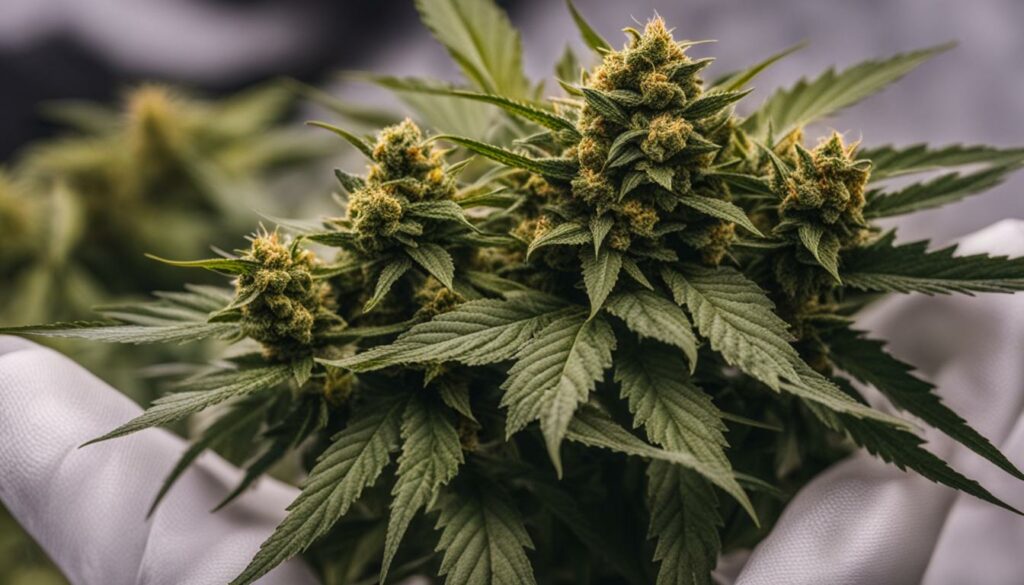
| Genetics | Effects | THC Content | Aroma |
|---|---|---|---|
| 75% Indica, 25% Sativa | Relaxation, mood enhancement, creativity | Around 19% | Citrus, fruit, pine, fuel |
“OG Kush, with its calming effects and unique aroma, is a popular choice among cannabis enthusiasts seeking relaxation and mental clarity.”
Kush Strains and the Hippie Trail
The influence of Kush strains, including the legendary Hindu Kush, on the cannabis industry cannot be overstated. These strains made their way to Europe and the New World through a famous route known as the Hippie Trail, blazing a trail of cultural exchange and cannabis seed distribution.
The Hippie Trail was a popular overland route taken by subculture seekers in the mid-1960s to late 1970s. It spanned across countries such as Pakistan, India, and Nepal, connecting young adventurers and travelers. Along this journey, many stumbled upon the Hindu Kush strain and recognized its unique qualities.
The cannabis seed exchange that took place along the Hippie Trail had a profound impact on cannabis cultivation outside its native region. Travelers and enthusiasts brought back Hindu Kush seeds, which ultimately led to the spread and popularity of Kush strains in Western countries.
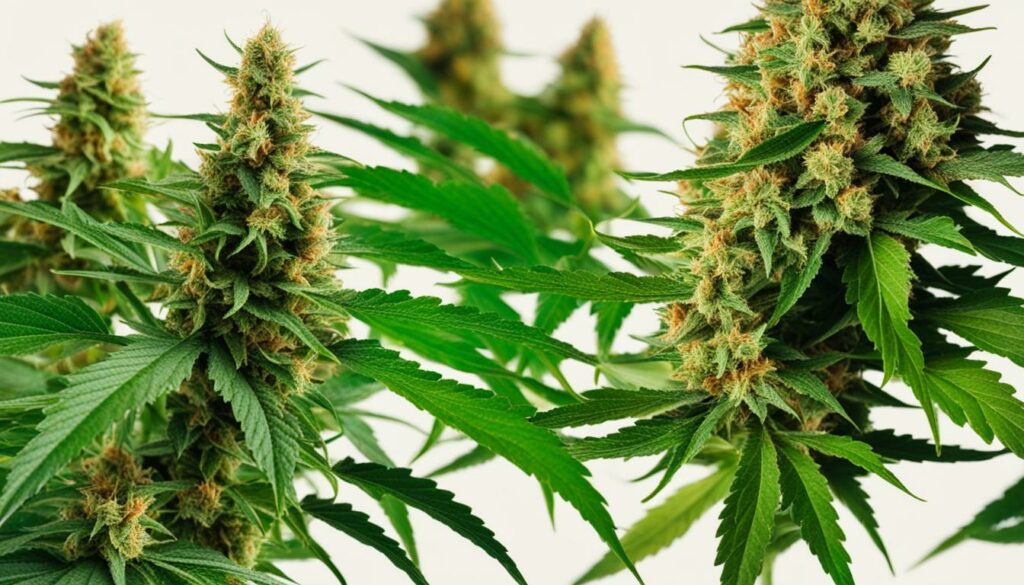
Today, the influence of Kush strains continues to shape the cannabis market. The genetics and characteristics of the Hindu Kush strain have been crossbred with other strains, resulting in a wide variety of offspring like OG Kush, Bubba Kush, and Purple Kush. These strains have become sought after for their potency, relaxing effects, and unique aromas.
The Hippie Trail remains a significant chapter in the history of cannabis culture, as it not only facilitated the exchange of ideas and experiences but also contributed to the diversification and proliferation of Kush strains worldwide.
The Impact of Hindu Kush on Cannabis Culture
Hindu Kush strains have had a profound impact on cannabis culture, influencing the industry in various ways. Renowned for their potency, resilience, and unique characteristics, Kush strains, including Hindu Kush, have gained widespread popularity among cannabis enthusiasts.
Kush strains, with their high THC content, offer powerful and relaxing effects that make them highly sought after by consumers seeking relief from chronic pain, anxiety, insomnia, and stress. The potent qualities of Hindu Kush and its offspring strains have contributed to the strain’s enduring popularity in the cannabis community.
However, the high THC content associated with Kush strains has also presented legislative challenges in some regions. The legal status of cannabis, particularly strains with high THC levels, varies around the world. This has led to ongoing debates and discussions surrounding the regulation and accessibility of Kush strains.
Despite the legislative challenges, Kush strains, including the iconic Hindu Kush, continue to hold a special place in cannabis culture. Their impact on the industry is undeniable, and their genetics have played a significant role in the development of many modern cannabis varieties. The journey of Hindu Kush from its ancestral home in the mountains to its widespread influence on cannabis cultivation and consumption is a testament to its enduring legacy.
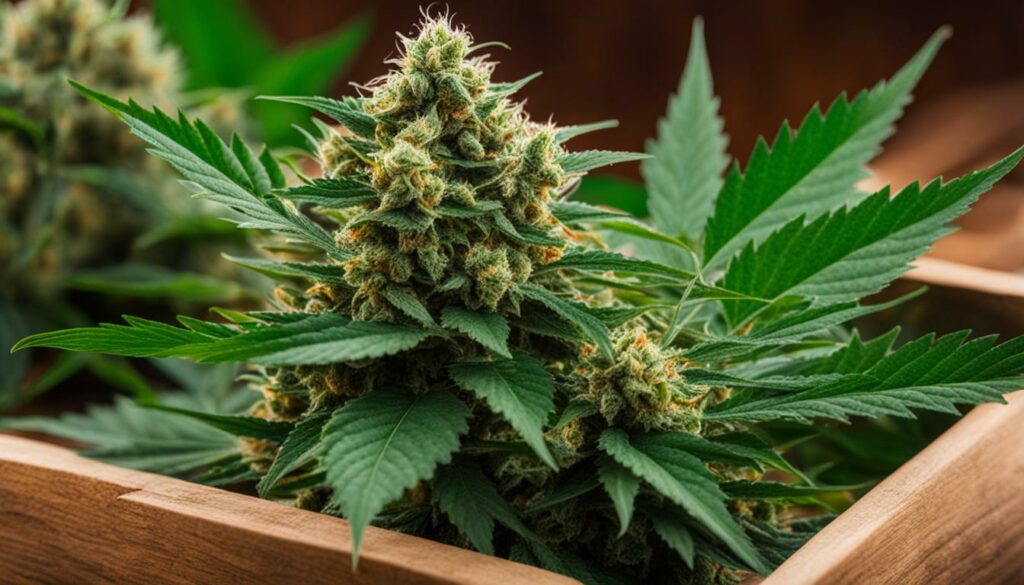
The Popularity of Kush Strains
One of the main reasons for the enduring popularity of Kush strains like Hindu Kush is their potency. With high THC levels, Kush strains deliver strong and long-lasting effects that are highly sought after by both recreational and medicinal users. The relaxing and soothing properties of Hindu Kush have made it a go-to strain for those seeking relief from various ailments.
Furthermore, the resilience of Kush strains makes them attractive to cannabis cultivators. They are known for their ability to thrive in different environments and withstand adverse conditions, making them ideal for both indoor and outdoor cultivation. The ease of growth and consistent yields have contributed to the widespread cultivation and availability of Kush strains in the market.
The Influence of Kush Strains on Cannabis Breeding
The genetic traits of Hindu Kush have had a profound impact on cannabis breeding. The stable genetics and distinct characteristics of Kush strains have served as the genetic backbone for many popular varieties, such as OG Kush and Candy Kush. The incorporation of Hindu Kush genetics has helped breeders create new and unique strains with desirable traits.
Moreover, the introduction of Hindu Kush and its offspring strains to the Western cannabis market through the Hippie Trail in the 1960s and 1970s paved the way for the exchange of cannabis seeds and the spread of Kush genetics. This cross-pollination of strains has further enriched the cannabis gene pool, leading to the development of diverse and potent varieties.
| Kush Strains | THC Content | Characteristics |
|---|---|---|
| Hindu Kush | 17-20% | Relaxing, musky aroma |
| OG Kush | 19% | Citrus, fruity aroma with undertones of pine and fuel |
| Candy Kush | 18-21% | Sweet, candy-like taste with a hint of earthiness |
Conclusion
In conclusion, Hindu Kush is a legendary strain that holds significant importance in the world of cannabis. With its rich history, distinct characteristics, and influence on cannabis culture, Hindu Kush has become a prominent name in the industry. Its stable genetics, relaxing effects, and unique aroma make it highly revered among cannabis enthusiasts.
Throughout its journey, Hindu Kush has left a lasting legacy in the cannabis scene. Its genetics have played a pivotal role in the breeding of popular varieties such as OG Kush and Candy Kush, making it a genetic backbone for many modern cannabis strains. The impact of Hindu Kush on cannabis cultivation and its influence on Western cannabis culture cannot be overlooked.
Despite its popularity and significance, Hindu Kush and other Kush strains have faced legislative challenges due to their high THC content. However, their potency and resilience continue to captivate cannabis enthusiasts, solidifying their special place in cannabis culture.
In summary, Hindu Kush’s rich history, distinct characteristics, and profound impact on cannabis culture make it a legendary strain. Its stable genetics, relaxing effects, and unique aroma have made it a favorite among cannabis enthusiasts worldwide. The significance of Hindu Kush cannot be overstated, making it a name that will forever be associated with the cannabis industry.
FAQ
What is Hindu Kush?
Hindu Kush is a highly regarded strain of cannabis named after the mountain range it originates from in Central Asia. It is known for its stable genetics, relaxing effects, and classic aroma.
Where are the Hindu Kush mountains located?
The Hindu Kush mountains stretch from central and eastern Afghanistan into northwestern Pakistan and southeastern Tajikistan. They are known for their breathtaking beauty and some of the highest peaks in the world.
Is Hindu Kush an indica or sativa strain?
Hindu Kush is a landrace indica plant, known for its short and bushy stature and physical stone that produces deep relaxation.
What is the history of Hindu Kush cannabis?
Hindu Kush cannabis has been growing in its native region for potentially hundreds of years. It was brought to the United States in the 1960s and 1970s and quickly gained popularity.
What are the effects and THC content of Hindu Kush?
Hindu Kush has a high THC content, ranging from 17-20%. It produces a powerful body stone that relaxes the mind and body, making it popular for pain relief, anxiety, insomnia, and stress.
What flavors and aromas does Hindu Kush have?
Hindu Kush emits musky, earthy notes with spicy undertones of sandalwood. Its terpenes contribute to citrus, herbal, and piney fragrances, creating a well-rounded and enjoyable experience.
How do you grow Hindu Kush cannabis?
Hindu Kush is a beginner-friendly strain to grow and thrives both indoors and outdoors. It has a short flowering time, can withstand less than desirable conditions, and produces good yields.
What is the legacy of Hindu Kush in the cannabis scene?
Hindu Kush has been extensively used in cannabis breeding, becoming the genetic backbone for many modern strains. Its influence can be seen in popular varieties like OG Kush and Candy Kush.
What is OG Kush?
OG Kush is one of the most renowned offspring of Hindu Kush. It is a hybrid strain known for its citrusy and fruity aroma with undertones of pine and fuel. It delivers uplifting effects with a THC content of around 19%.
How did Hindu Kush and other Kush strains make their way to Europe and the New World?
Hindu Kush and other Kush strains were brought to Europe and the New World through the Hippie Trail, a popular overland route taken by subculture seekers in the mid-1960s to late 1970s.
What impact has Hindu Kush had on cannabis culture?
Hindu Kush and other Kush strains revolutionized cannabis production with their potency and resilience. However, the high THC content associated with Kush strains has led to legislative challenges in some regions.
What is the significance of Hindu Kush in the cannabis industry?
Hindu Kush remains a legendary strain with a rich history, distinct characteristics, and influence on cannabis breeding. It is highly regarded for its stable genetics, relaxing effects, and unique aroma.
Source Links

